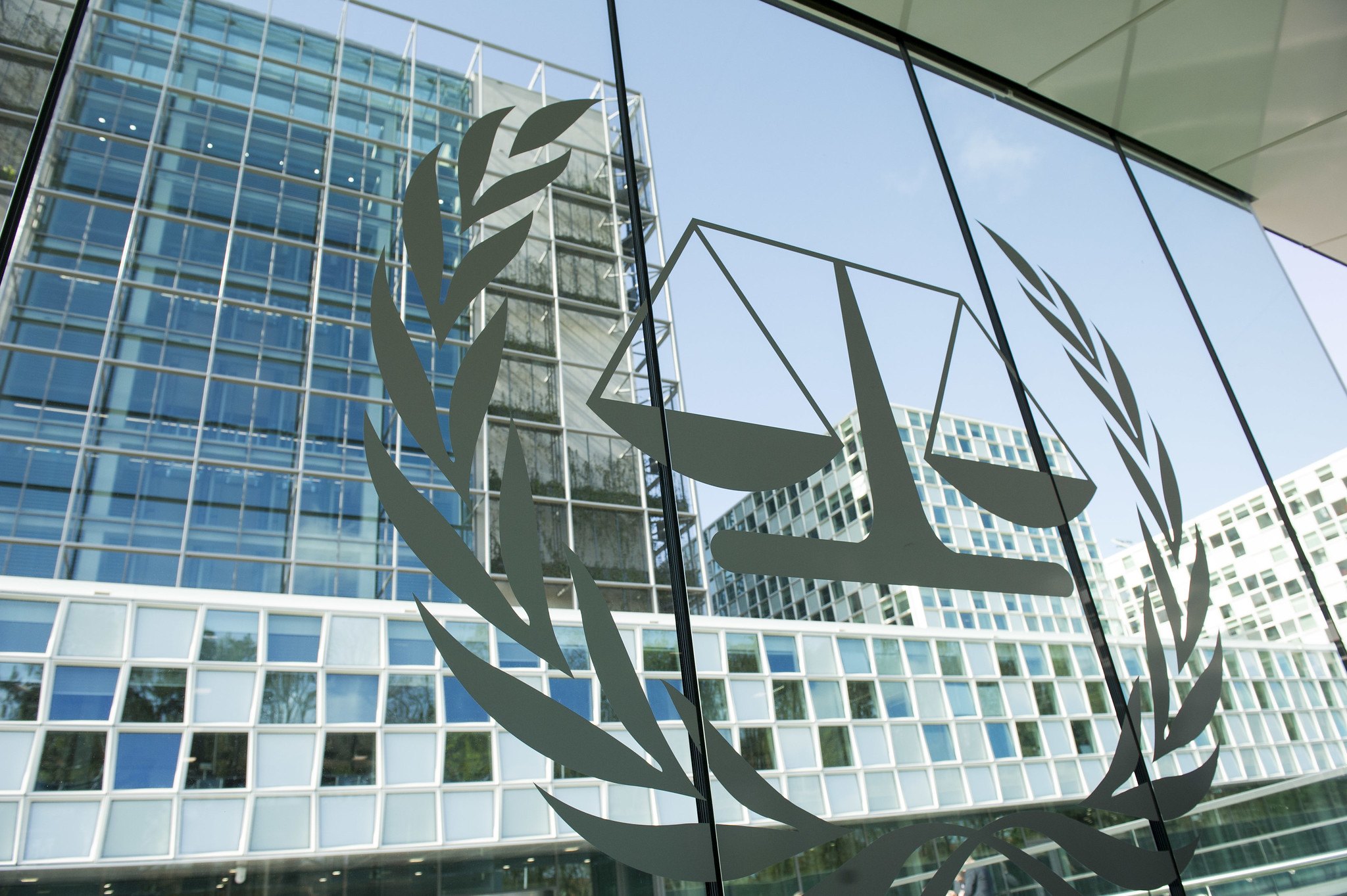Why Is Ukraine Ratifying the Rome Statute With an Article 124 Caveat?

Published by The Lawfare Institute
in Cooperation With

On Aug. 24—Ukraine’s 33rd Independence Day—Ukrainian President Volodymyr Zelenskyy signed a law on ratifying the Rome Statute of the International Criminal Court (ICC). It should enter into force together with an implementation law aligning Ukrainian legislation with the Rome Statute, which is still being considered by the Ukrainian Parliament. Still, reportedly due to Ukrainian military and security officials’ concerns about potential ICC exposure, Ukraine declared, according to Article 124 of the statute, that it does not accept the ICC jurisdiction on war crimes over its nationals for seven years after it becomes a state party to the statute. Despite uncertainties over the legal effect of Ukraine’s declaration, Ukrainian legal advisers argue that it “removes existing risks for [Ukrainian military]” and does not prejudice Ukraine’s justice efforts. At the same time, some international scholars and nongovernmental organizations considered the caveat to signal double standards. For example, Tufts Law Professor Tom Dannenbaum argues that “Ukraine risks sacrificing the moral high ground for little or no benefit.”
Ukraine had three options for engaging with the ICC pending the current war. It could keep ICC jurisdiction under the Article 12(3) ad hoc declarations it lodged earlier without becoming an ICC state party. It could also ratify the statute without qualifications. As of now, it has chosen the Article 124 caveat option. Each of these options has benefits and drawbacks, producing trade-offs between bolstering Ukraine’s justice efforts and managing risk perception of the Ukrainian military and security officials. Indeed, Ukraine faces a more complex choice than is generally presented in public discourse.
History of the Ratification
Ukraine signed the Rome Statute back in 2000 but did not ratify it. A long-standing obstacle to the ratification was the 2001 Constitutional Court decision, finding that the statute’s “complementarity to national criminal jurisdictions” contradicted Article 124 of the Ukrainian Constitution, which vested the judicial power exclusively in the exhaustive list of Ukrainian courts. This obstacle was remedied only in 2019 when the 2016 amendments to Article 124 explicitly allowing the statute’s ratification became effective.
In the context of killings during the Revolution of Dignity, the Russian occupation of Crimea, and an armed conflict in Eastern Ukraine, the Ukrainian Parliament accepted ICC jurisdiction over Ukrainian territory by ad hoc declarations under Article 12 (3) of the Rome Statute without Ukraine becoming a state party. The 2014 declaration related to the revolution and covered acts committed on Ukrainian territory from Nov. 21, 2013, to Feb. 22, 2014. The second 2015 declaration continues to be the sole basis for ICC jurisdiction over crimes committed on Ukrainian territory from Feb. 20, 2014, until Ukraine becomes a party to the Rome Statute. Although the Office of the Prosecutor concluded in 2020 that “criteria for opening investigations into the situation in Ukraine are met,” it began the investigation only on March 2, 2022, after the Russian full-scale invasion had begun, based on the referrals by 39 states parties to the Rome Statute. Four more states parties filed their referrals afterward.
On March 17, 2023, the ICC Pre-Trial Chamber issued arrest warrants against Vladimir Putin and Maria Lvova-Belova for the alleged deportation of children. In March and June 2024, it also issued warrants against former Russian Minister of Defense Sergei Shoigu, Chief of the General Staff Valery Gerasimov, and two Russian generals for the alleged crimes of attacking civilian objects, causing excessive incidental harm to civilians or damage to civilian objects, and crimes against humanity related to Russian strikes on the Ukrainian energy infrastructure. ICC warrants alleging other crimes may follow.
Despite the otherwise active engagement with the ICC and reported support for the ratification in the Ministry of Justice and Ministry of Foreign Affairs, the Ukrainian political leadership for a long time took the position that the Rome Statute would be ratified only following the end of the current war, considering the military’s concern about potential ICC scrutiny (discussed further below). However, a newly appointed deputy head of the Office of the President, Iryna Mudra, and her team seemed to be able to convince opposing voices, including the military officials and members of Parliament, that the ratification’s benefits exceed its potential risks. The Article 124 caveat was instrumental in getting enough internal buy-in for the ratification law. However, there remains resistance to and a public campaign against the ratification, including from the political opposition.
Ukraine seeks several benefits from the ratification. First, it hopes to bolster its efforts in holding Russian leadership and military accountable for crimes committed while waging war against Ukraine. Although the detention and ensuing trials of the suspects are unlikely to happen any time soon, the arrest warrants may deter travel of the suspects to ICC member states. Indeed, the ICC arrest warrant may be a reason why Putin has abstained from his travels so far, for example, to South Africa, Mexico, and Brazil—although it didn’t prevent his recent trip to Mongolia.
In sum, the current added value of the ICC and its arrest warrants is more about maintaining Ukraine’s moral high ground and leveraging international law as the marker of legitimacy, especially as a means of isolating Russia on the international stage and galvanizing support for Ukraine.
The ratification may help Ukraine foster ICC investigations and prosecutions in several ways. First, by becoming a state party to the statute, Ukraine will have more say in ICC activities and greater ability to maintain its focus on the situation in Ukraine, including by participation in the ICC Assembly of States Parties. According to Ukrainian officials, the membership should also dissuade allegations in some quarters, including states to which potential suspects may travel, about Ukraine’s double standards in seeking Russian accountability while not being an ICC member itself. That said, the ratification with the Article 124 caveat still leaves room for double standards allegations in the sense that it aims at keeping ICC jurisdiction over Russian nationals while excluding it over the Ukrainians—although Russia can also join the statute with the Article 124 caveat. The ratification should also preclude potential concerns from some states parties that the ICC is expending time and resources on a state that has not bothered to ratify the statute.
Second, the ratification helps Ukraine bind its hands on the ICC prosecutions for any potential talks with Russia in the future. During the so-called Istanbul talks between Ukraine and Russia at the beginning of the full-scale invasion in 2022, Russia reportedly demanded that Ukraine revoke the ad hoc declarations and avoid ratifying the Rome Statute. However, with the ratification fait accompli, Ukraine’s parting ways with the ICC will be much harder to realize than under the ad hoc declarations. Namely, Article 127 of the Rome Statute allows a withdrawal only with a one-year notification and explicitly provides that it does not affect any obligations that accrued before, including on cooperation with the ICC. The article also stipulates that the withdrawal would not prejudice any ICC matter that was under consideration before it became effective. Importantly, as explained below, the ratification will make the Rome Statute part of Ukrainian law, including the withdrawal provisions, prevailing over any Ukrainian statute in case of a conflict but for the Constitution. Under the circumstances, Article 16 of the Rome Statute, which provides for a renewable 12-month deferral of ICC investigations and prosecutions based on the UN Security Council’s resolution, may loom especially large, giving potential leverage to Ukraine and its partners. Namely, the continued renewal of suspension can be conditioned on Russia keeping its part of a potential future arrangement. If Russia defaults, for example, by attacking Ukraine again, the U.S., U.K., and France may veto the renewal as permanent members of the Security Council.
Third, by joining the statute, Ukraine performs its commitment related to its EU integration and security arrangements, potentially putting it in a better position to ask the partners to act on their promises. Namely, Ukraine promised to ratify the Rome Statute in Article 8 of the EU-Ukraine Association Agreement and some bilateral security agreements with, for example, Germany, the Netherlands, and the Czech Republic. The ratification is also important for Ukraine’s path to EU membership because all EU members and candidates (except Ukraine and Turkey) are states parties to the Rome Statute. That said, the mentioned agreements do not specify the exact timing for the ratification—thus not excluding the possibility of ratification taking place after the current war. Also, bilateral security agreements with many other partners, including such significant donors as France, Italy, the U.S., and the U.K., do not contain the ratification requirement.
Finally, the ratification allows invoking the Article 124 caveat to exclude ICC jurisdiction on war crimes over Ukrainian nationals—which, as explained below, is associated with substantial legal uncertainties.
The Military’s Risk Perception
Some observers argue that Ukraine’s decision to temporarily shield its nationals from ICC jurisdiction is unreasonable. Dannenbaum claims that Ukraine’s declared caveat is “unprincipled, … unnecessary, and contrary to [Ukraine’s national interest].” However, the situation is more complex considering the genuine concerns of the Ukrainian military and security officials about potential ICC exposure, which cannot simply be disregarded, as Dannenbaum and others seem to suggest. Although such concerns create grounds for double standards allegations, any military involved in an armed conflict may reasonably have them without planning to commit war crimes. As Harvard Law Professor Jack Goldsmith suggestedwhile explaining the U.S.’s refusal to ratify the Rome Statute, “the indeterminateness of international criminal law makes it easy to imagine the ICC and the United States having genuine, principled disagreements about whether a particular act is an international crime.” Although more than 20 years of ICC practice since Goldsmith’s take clarified many issues, it still remains relevant. For example, such disagreements are especially likely with respect to proportionality of military strikes, which may involve hard battlefield calls that are often subject to genuine contestations.
It is possible that, in the future, a current or future prosecutor may question some of Ukraine’s military strikes as, for example, “clearly excessive in relation to the concrete and direct overall military advantage anticipated,” especially considering the importance for the ICC to be perceived as an impartial, independent, and objective institution. For example, reported Ukrainian drone strikes on oil depots and power plants deep into Russian territory may lead to different takes on their legality, including proportionality, depending on exact circumstances (for legal complexities related to strikes on the energy infrastructure, see Michael Schmitt’s piece). As mentioned earlier, the ICC issued arrest warrants related to Russian attacks on the Ukrainian energy infrastructure, alleging in part that they were clearly disproportionate. Although it may be possible to differentiate Ukrainian strikes from Russian ones—especially based on the level of impact for the civilian population—one cannot completely preclude the possibility that a prosecutor might start investigations on this due to potential public perception. Importantly, Ukrainian President Zelenskyy framed the Ukrainian attacks on the Russian energy infrastructure in terms resembling the legal concept of reprisals, namely to induce Russia to stop its attacks on the Ukrainian energy infrastructure. There were reports that Ukraine and Russia were allegedly contemplating a mutual halt on such attacks, suggesting that the Ukrainian strikes might have yielded at least some desired effect. Still, considering the strict limits on reprisals in international humanitarian law, including the prohibition on using them against civilians and civilian objects under Additional Protocol I to the Geneva Conventions, a prosecutor may disagree with this potential fallback position of Ukraine.
Taking only the above example, the Ukrainian military’s concerns are not without merit. Their risk perception is further amplified by the exaggeration of the ratification’s risks by some Ukrainian politiciansand reported concerns over potential submissions of evidence to the ICC by Russia-backed actors, which may contain distorted evidence, considering prior reports of Russian attempts at evidence fabrication. Also, there may be concerns about risks of potential ICC exposure for acts that took place during armed hostilities in Eastern Ukraine before the 2022 full-scale invasion (see the 2019 ICC Report on Preliminary Examination Activities suggesting that the prosecutor carefully looked into the Ukrainian conduct as well). On a separate note, some reported operations of the Ukrainian security services against pro-Russian collaborators also create risks of ICC exposure.
There are some ICC rules and policies that may decrease the chances of investigations against the Ukrainians. For example, according to the complementarity requirement, the ICC would not investigate and prosecute alleged crimes unless it considers Ukrainian courts “unwilling or unable genuinely” to do so. However, given that the Ukrainian judicial system is swamped with war crimes cases, it may not have the ability to properly scrutinize all the targeting decisions, especially on Russian territory, and the Ukrainian prosecutors and judges may have different judgments on the legality of certain acts than the ICC.
A high level of risk perception by the Ukrainian forces may chill their operations and sometimes put them at a disadvantage vis-a-vis the Russian army, which does not experience similar deterrence pressures. If arrest warrants are issued against Ukrainians, there are higher chances of their enforcement than with Russians, in part due to Ukraine’s dependence on cooperation with many states parties to the Rome Statute. Importantly, although the Ukrainian military receives legal advice, it does not have a robust system of in-house advisers able to inform targeting decisions on a constant basis (akin to judge advocate generals in the U.S. Army) and provide reassurance to military commanders.
That said, the temporary exclusion of ICC jurisdiction over Ukrainian nationals comes with a significant trade-off: It may weaken deterrence of unlawful conduct and decrease incentives for Ukrainian authorities to scrutinize such actions. Still, Ukraine’s reliance on Western support—which might crumble in the case of substantial Ukrainian violations—could still serve as an important deterrent. For example, the Germany-Ukraine bilateral security agreement stipulates “bringing justice” to all responsible for war crimes regardless of nationality and the need to “ensure indiscriminate enforcement of [international humanitarian law] with the view to prevent future crimes.“
Ad Hoc Declarations vs. Ratification
In Ukraine’s second Article 12(3) declaration, the Ukrainian Parliament purported to limit ICC jurisdiction to “senior officials of the Russian Federation and leaders of terrorist organizations ‘DPR’ and ‘LPR’,” but the ICCvpractice does not allow this. The unqualified ratification would broaden ICC exposure of Ukrainian officials in several respects.
First, the declarations created ICC jurisdiction over crimes committed by any person on Ukrainian territory, including areas occupied by Russia but not on Russian territory. However, the unconditional ratification would extend ICC jurisdiction over Ukrainian nationals elsewhere, including on Russian territory. Considering the increasing Ukrainian military operations on Russian territory (including the Kursk offensive and long-range drone strikes), this is an important difference. Still, according to the ICC, it “may exercise jurisdiction over crimes when part of the criminal conduct takes place on the territory of a State Party.” Under this approach, attacks launched from Ukrainian territory may be subject to ICC jurisdiction under the declarations; attacks launched outside Ukraine and beyond the territory of other parties to the Rome Statute would not be subject to its jurisdiction.
Second, under the declarations, Ukrainian law enforcement officials do not have domestic legal grounds to deliver suspects to the ICC. Although the declarations are binding under international law, they do not have the force of a statute under Ukrainian law. According to Article 9 of the Ukrainian Constitution and the Law of Ukraine on International Treaties, only treaties ratified by Verkhovna Rada become part of Ukrainian law and prevail over other statutes (but not the Constitution) in case of conflict. The declarations were enacted as the Parliament’s resolutions, which are inferior to statutes and cannot limit individual rights and freedoms. Also, a procedural framework for cooperation with the ICC was incorporated into the Criminal Procedure Code of Ukraine only in 2022 and limited such cooperation essentially to individuals who participated in the aggression against Ukraine.
At the same time, the ratification law will make Ukraine’s obligations under the Rome Statute fully binding under Ukrainian law. Also, a draft implementation law aims to remove the mentioned procedural limitation on ICC cooperation. Therefore, after the ratification, Ukrainian authorities will be obliged to cooperate with the ICC, including with respect to potential investigations against its nationals as a matter of both Ukrainian and international law. These obligations will extend to cooperation with the ICC in other situations. For example, if the ICC satisfies the prosecutor’s pending application for arrest warrants against Israeli officials, the Ukrainian officials will be obliged to cooperate.
Pros and Cons of the Article 124 Caveat
Ukrainian legal advisers present the Article 124 caveat as a “forced compromise” for both promoting Ukraine’s justice efforts and managing the Ukrainian forces’ risk perception. However, the option still risks harming both equities. Article 124 of the Rome Statute, labeled “transitional provision,” provides that:
a State, on becoming a party to this Statute, may declare that for […] seven years after the entry into force of this Statute […] it does not accept [ICC jurisdiction over war crimes, but not genocide and crimes against humanity] committed by its nationals or on its territory.
Ukraine’s ratification law makes such a declaration over potential crimes of its nationals only, otherwise accepting ICC territorial jurisdiction over crimes committed by, for example, Russian nationals on its territory. The Ukrainian legal team argues that this declaration “removes existing risks for [the Ukrainian military].” However, unprecedented legal uncertainties exist in this respect, which the ICC judges can resolve if requested by the prosecutor.
First, it is not clear what effect the Article 124 declaration has on the current ICC jurisdiction under Ukraine’s Article 12(3) ad hoc declarations. International legal scholars Zimmerman, Heller, and Dannenbaum took a position that Article 124 allows the exclusion of ICC jurisdiction only “after,” not “before,” the statute’s entry into force, meaning that the ICC would still have jurisdiction within the ad hoc declarations’ scope. Zimmerman also highlights that Article 124 specifies the non-acceptance of ICC jurisdiction “[n]otwithstanding article 12, paragraphs 1 and 2,” but not paragraph 3 on the ad hoc declarations. Still, Zimmerman acknowledged that the non-acceptance of ICC jurisdiction “after” the entry into force might be interpreted as a wholesale exclusion of ICC jurisdiction for seven years whenever alleged crimes took place.
Also, there are conflicting views as to whether the ad hoc declarations may still provide an alternative basis for the ICC jurisdiction after Ukraine joins the Rome Statute with the Article 124 caveat. The Ukrainian position is that Article 124 and Article 12(3) declarations are two different regimes—the former for members, the latter for nonmembers—which do not intersect, potentially suggesting that the declarations would not serve as a basis for the ICC jurisdiction after the ratification at all. There are risks that the ICC may find its jurisdiction based on the ad hoc declarations either until and/or after the ratification, which would be limited to Ukrainian territory. However, unlike before the ratification, in such a case, Ukrainian law enforcement agencies would be obliged to cooperate with the ICC under Ukrainian law based on the declarations because the ratification and implementation laws will make the entire Rome Statute fully operative under Ukrainian law.
On a separate note, Dannenbaum argues that the Court can decide that “the fact of the prior article 12(3) declaration precludes an article 124 declaration because the latter would not perform the ‘transitional’ function for which it was created.” We disagree. Article 124 clearly defines the transition as “becoming a party to this Statute,” not any extension of ICC jurisdiction over a state. If the parties wanted to connect Article 124 with Article 12(3), they would have likely specified this. Also, one of the purposes of Article 124 is to incentivize the ratification by states that would not do it otherwise. Dannenbaum’s construction would instead decrease such incentives for states that made the Article 12(3) declarations and potentially those that were subject to ICC territorial jurisdiction.
Second, there are different views as to whether a state can pick and choose a scope of ICC jurisdiction under Article 124’s wording “by its nationals or on its territory,” including denying jurisdiction only over its nationals. Zimmerman and Ukrainian advisers suggest this is possible due to the word “or” in Article 124. However, according to Heller and Dannenbaum, a better reading would treat the phrase “by its nationals or on its territory” as a non-severable jurisdictional package, among other things, considering the court’s tendency to approach situations holistically. Under the latter approach, the ICC will not have jurisdiction over both Ukrainian and Russian nationals unless Ukraine revokes the Article 124 declaration. According to Dannenbaum, even under the “pick and choose” option, the ICC may still find the territorial jurisdiction covering actions of Ukrainian nationals on its territory (Zimmerman thinks that this is not the best reading considering the drafting history). In this scenario, the Ukrainian military exposure would be essentially like one under the ad hoc declarations after the ratification.
In sum, the exact risks of the Ukrainian military’s exposure to ICC investigations would hinge on the ICC judges’ decision on the legal effect of Article 124, which may well present additional risks. According to the Ukrainian advisers’ statements, it seems that the military relies on the representation that the declaration “removes existing risks” for them. Under the circumstances, if the ICC rules contrary to the Ukrainian legal position, for example, by extending jurisdiction over Ukrainian nationals or precluding jurisdiction over Russian nationals, Ukraine may have a hard time balancing between pursuing its justice efforts and keeping its word to its military, especially considering the enormous level of trust in the Ukrainian Armed Forces among the Ukrainians. For the same reasons, calls to recall the Article 124 declaration may be challenging to realize.
***
Although making the declaration under Article 124 is certainly a sovereign right of Ukraine (much like, for example, postponing the ratification), the desire to temporarily exclude Ukrainians from ICC jurisdiction while keeping jurisdiction over Russians still leaves room for double standards allegations. That’s a trade-off baked into this option. But without it, the ratification may not have a chance at this point. Only time will tell whether an arguably middle-ground option of the Article 124 caveat was the right choice.




.jpg?sfvrsn=564b5f50_5)

